Cross-Border Cooperation Congress has become a permanent fixture on the calendar of Lublin’s most important international events as a meeting place for practitioners of cross-border cooperation from the European Union and the Eastern Partnership countries. The Congress is a platform for dialogue between local governments, non-governmental organizations, science, culture and business. Thousands of people from over 40 countries have participated in the previous editions of the Congress.
Last year’s edition of the Congress was held on October 5-7, 2022 in a hybrid format (participants onsite in Lublin and on-line), with simultaneous translation into Polish, English and Ukrainian.
The main theme of the 11th edition of the Congress was “Security and Solidarity”. Russia’s aggression against Ukraine and the refugee crisis it triggered have demonstrated the strength of the bonds between local communities from Ukraine, Poland and the whole democratic Europe. The often underestimated city partnerships, many years of cooperation between cultural institutions, schools, universities and non-governmental organizations have built intercultural and organizational competences that allowed to create an effective system of support for millions of refugees and humanitarian aid to the fighting Ukraine.
We invited city representatives from different parts of Europe to participate in the discussion to summarize the cooperation of local communities in support for Ukraine and its citizens from a broad perspective. During the open debate with the authorities of the cities involved in helping Ukraine, we talked about their experiences from the first weeks after the outbreak of the war. The starting point for further discussion was the presentation of the experiences of Lublin, where the Lublin Social Committee for Aid to Ukraine was established just a few hours after the outbreak of the war. Established on the initiative of non-governmental organizations from Lublin in cooperation with the local government, supported by a multitude of volunteers, it offered comprehensive assistance to refugees arriving in the city.
In the Congress program, we planned a wide range of interesting topics related to the current situation, including: cooperation and medical assistance for Ukraine, the functioning of the administration and judiciary during the war, and the phenomenon of disinformation and manipulation. There was also a panel presenting war from a female perspective: “War through the eyes of women, women at war”.
As the next year’s European Youth Capital, we invited young people from all over Europe to the meetings and debates. Thanks to the initiative “Youth for the City, City for Youth – projects and initiatives involving and including local communities”, we created space for young people from Poland, Norway, Ukraine and Belarusians for discussion during panels and workshops as well as study visits within the Congress. We talked about forming youth policies with the participation of young people themselves, about the experience of migration and the role of young people in intercultural integration and combating discrimination.
Last year’s Congress was accompanied by Cross-Border Cooperation Academy – a week-long workshop for young leaders from the Visegrad Group and the Eastern Partnership on, in particular, activities for intercultural integration.
An important area of the Congress was the sustainable and innovative development of public transport. Within the project “MOVE IT LIKE LUBLIN” implemented in partnership with Chișinău, there was a panel, workshop and study visit on innovative solutions in public transport.
Traditionally, there were the Grants’ Fair and the Partners’ Forum, combined with the presentation of the new financial perspective of the Program Interreg NEXT Poland-Ukraine 2021-2027 (former Cross-border Cooperation Programme PL-BY-UA).
The main feature of the Congress is a diverse cultural program. Last year, it was possible to participate live or on-line in performances, concerts, exhibitions and meetings with the slogan “City beyond the borders”. Within a short period of time, the immigrant community already present in Poland was joined by several million refugees and women refugees from Ukraine, Belarus and other countries at war or ruled by authoritarian regimes. In this situation, the topic of integration, inclusion through culture, but also providing creators with a safe space for artistic expression, became extremely topical. Using the language of art, we examined the challenges and threats to the freedom of creativity and artistic expression, in times of growing conflicts and the tendency to close oneself within one’s own boundaries – both literal and metaphorical.

